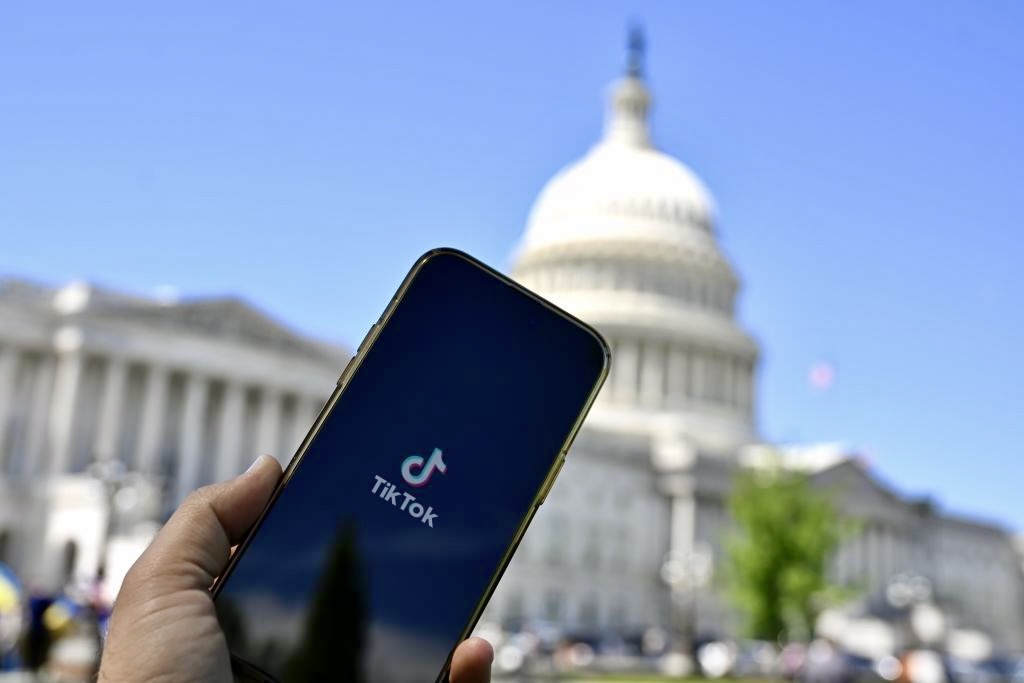May 8, 2024
The app is not trying to silenced!
TikTok is pushing back on a bill that will potentially ban the app in the U.S., with a lawsuit claiming the ban violates the First Amendment.
As the U.S. has threatened the social media app’s Chinese owner to sell or risk having it banned, the suit filed on May 7 in the U.S. Circuit Court of Appeals for Washington, D.C., argues the bill, the Protecting Americans from Foreign Adversary Controlled Applications Act, violates the constitutional protections of free speech, calling it an “unprecedented violation.” “For the first time in history, Congress has enacted a law that subjects a single, named speech platform to a permanent, nationwide ban,” the lawsuit reads.
“And bars every American from participating in a unique online community with more than 1 billion people worldwide.”
The suit continues to allege that invoking national security concerns is not a prevalent reason to restrict free speech, leaving it up to Congress to prove otherwise, something lawmakers have yet to do.
Signed by President Joe Biden, the bill, as part of a bigger foreign aid package, is the first time the U.S. has singled out a social media company for a potential ban, according to The Associated Press. Free speech advocates are surprised by the move, suggesting it is something expected from foreign governments in Iran and China.
The lawsuit is anticipated to have an additional timeline for a potential ban or sale. TikTok’s owner, ByteDance, has already had over a year to make a move. However, legal proceedings will add a continuation to that timeline — meaning it could be some years before a ban could be issued.
Selling the popular social media platform is a complicated process. If there were to be a sale already in progress, ByteDance would receive another three months to make the sale complete. However, the owner announced it has no plans to sell TikTok. However, if that changed, the capital of China, Beijing, would need to give their permission.
While the Justice Department declined to comment on the suit, chairman of the House Select Committee on the Chinese Communist Party, John Moolenaar (R-Mich.), released a statement saying TikTok is a severe “threat to the American people.” “Congress and the Executive Branch have concluded, based on both publicly available and classified information, that TikTok poses a grave risk to national security and the American people,” Moolenaar said.
“It is telling that TikTok would rather spend its time, money, and effort fighting in court than solving the problem by breaking up with the CCP. I’m confident that our legislation will be upheld.”
Both GOP and Democratic lawmakers have expressed concern over the app’s data collection and security measures, as well as how the app’s video recommendation algorithm works. However, the Chinese government has “made clear” — according to the lawsuit — that they will not allow the parent company to include an algorithm that populates users’ feeds, which they describe as the “key to the success of TikTok in the United States.”
Security experts have looked at the allegations with some concerns of their own, highlighting the U.S. concerns as its own faults — with the lack of data security laws — TikTok is no different than other apps, including Instagram and Facebook.
The claims of efforts to manipulate public opinion have no core basis with limited evidence.
First Amendment experts like the executive director of the Knight First Amendment Institute at Columbia University, Jameel Jaffer, think TikTok has a good shot at being successful with this lawsuit. “The First Amendment means the government can’t restrict Americans’ access to ideas, information, or media from abroad without a very good reason for it — and no such reason exists here,” Jaffer said.
However, victory may not be as simple, with national security measures potentially being at risk. “The bipartisan nature of this federal law may make judges more likely to defer to a Congressional determination that the company poses a national security risk,” Gautam Hans, a law professor and associate director of the First Amendment Clinic at Cornell University, said.
“Without public discussion of what exactly the risks are, however, it’s difficult to determine why the courts should validate such an unprecedented law.”
Enter your Email Address below to get our fun-filled Newsletter!
© 2024 Black Enterprise. All Rights Reserved.

